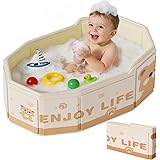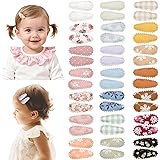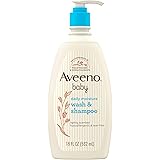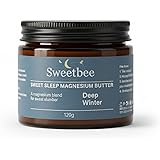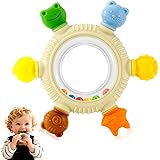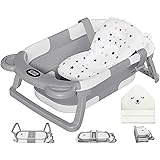Becoming a new parent is an incredible journey, often filled with overwhelming joy and, let’s be honest, a fair amount of uncertainty. Do you ever feel like the rules for raising a baby change constantly, especially when it comes to their delicate skin? From old advice about baby powder to new guidelines on sun protection, navigating newborn skin care can be a challenge.
The video above features a board-certified dermatologist, who is also a parent himself, sharing invaluable tips drawn from both his professional expertise and personal experience. He offers five crucial pieces of advice that have helped him raise his own children and can guide you through those “clueless” moments that all new parents experience. Let’s delve deeper into these essential strategies, expanding on why they are so vital for your baby’s skin health.
The Essential Role of Moisturizers: Aquaphor and Vaseline
The doctor highlights Aquaphor and Vaseline as “life-saving” staples, recommending their use from day one. Why is this greasy petroleum ointment so crucial? These products are occlusives, meaning they form a protective barrier on the skin’s surface. This barrier helps to lock in moisture, prevent water loss, and shield delicate baby skin from environmental irritants.
Imagine if your baby’s skin was like a leaky bucket; constant moisturization with products like Aquaphor helps to seal those leaks, keeping the skin hydrated and strong. Studies have shown significant benefits to applying moisturizers to infants early on. This proactive approach can not only decrease the chances of a baby developing eczema, a common inflammatory skin condition, but also reduce the severity of flare-ups if it does appear later in life. Eczema often manifests as dry, itchy, red patches, and maintaining a robust skin barrier is a key defense mechanism. Applying these gentle ointments after a bath is particularly effective, trapping moisture when the skin is most receptive.
Gentle Cleansing: The Tear-Free Advantage
When it comes to bathing your little one, selecting the right products is paramount. The doctor enthusiastically recommends Johnson & Johnson’s tear-free formulation, a classic choice for a reason. Accidents happen; soapy water can inadvertently drip into a baby’s eyes, and a tear-free shampoo ensures that this doesn’t lead to irritation or stinging. This simple consideration makes bath time a more pleasant, less stressful experience for both parent and child.
Beyond specific brands, the principle is to choose shampoos and washes that are specifically designed for babies. These typically have milder ingredients and a pH balance closer to that of healthy skin, preventing dryness and irritation. When bathing, remember to use lukewarm water, keep baths short, and always gently pat the skin dry before applying moisturizer to seal in the hydration.
Conquering Diaper Rash: Desitin to the Rescue
Diaper rash is an almost inevitable part of infancy, and having a reliable solution on hand is a must. The doctor offers a clear recommendation: opt for the purple tube of Desitin over the blue. The key difference lies in the zinc oxide content, with the purple formulation containing more of this essential ingredient.
Zinc oxide is a powerful anti-inflammatory and barrier cream. It creates a thick, protective layer that shields the skin from the multi-factorial irritants present in a diaper environment—urine, feces, and friction. As the doctor explains, this protective barrier is also effective for preventing intertrigo, which is skin inflammation caused by frictional rubbing, not just for babies but also in adults. Imagine your baby has a cold, leading to frequent bowel movements and more wiping; this constant irritation can quickly break down the delicate skin barrier. A thick application of purple Desitin acts like a protective shield, preventing the area from becoming raw and promoting healing. It’s truly a must-have for your diaper bag, especially during travel when inconvenient sickness can strike.
Essential Sun Protection: Sunscreen Strategies for Babies
Protecting that “beautiful, silky smooth baby skin” from the sun’s harmful rays is non-negotiable. The doctor stresses the importance of sunscreen for babies six months and older. For infants under six months, the primary method of sun protection should be avoidance: keeping them in the shade, dressing them in protective clothing, and ensuring they remain indoors during peak sun hours.
For older babies, mineral sunscreens containing zinc oxide and titanium dioxide are the preferred choice. These ingredients sit on the skin’s surface and physically block UV rays, rather than being absorbed. The doctor highlights a crucial point: even in the car, UVA rays can penetrate side windows, affecting your baby. Therefore, sunscreen should be applied even during car rides. Apply sunscreen at least 15 minutes before going outdoors to allow it to set, and reapply every one to two hours, or more frequently if swimming or sweating. While mineral sunscreens can leave a “ghost white” appearance, as the doctor cheerfully points out, babies are adorable no matter what, and their skin protection is far more important than a perfectly clear finish. Always have a tube in your diaper bag, car, and travel kit.
Hydrocortisone for Minor Irritations
Rounding out the five essential tips is the recommendation to have a tube of over-the-counter 1% hydrocortisone cream. This mild topical steroid can be very effective for calming minor skin irritations, such as allergic reactions or insect bites. For instance, if your baby accidentally brushes against a plant like poison ivy, a small amount of hydrocortisone can help reduce the inflammation and itchiness.
The doctor also offers a word of caution regarding “all natural” products. While many parents gravitate towards natural ingredients, some can still trigger allergic reactions. He specifically mentions propolis in beeswax as a potential allergen. Always patch-test new products and consult with your pediatrician or dermatologist if you’re unsure about a rash or skin reaction. Hydrocortisone offers a safe and effective option for managing minor, localized irritations, but any widespread or persistent rash should always be evaluated by a medical professional.


